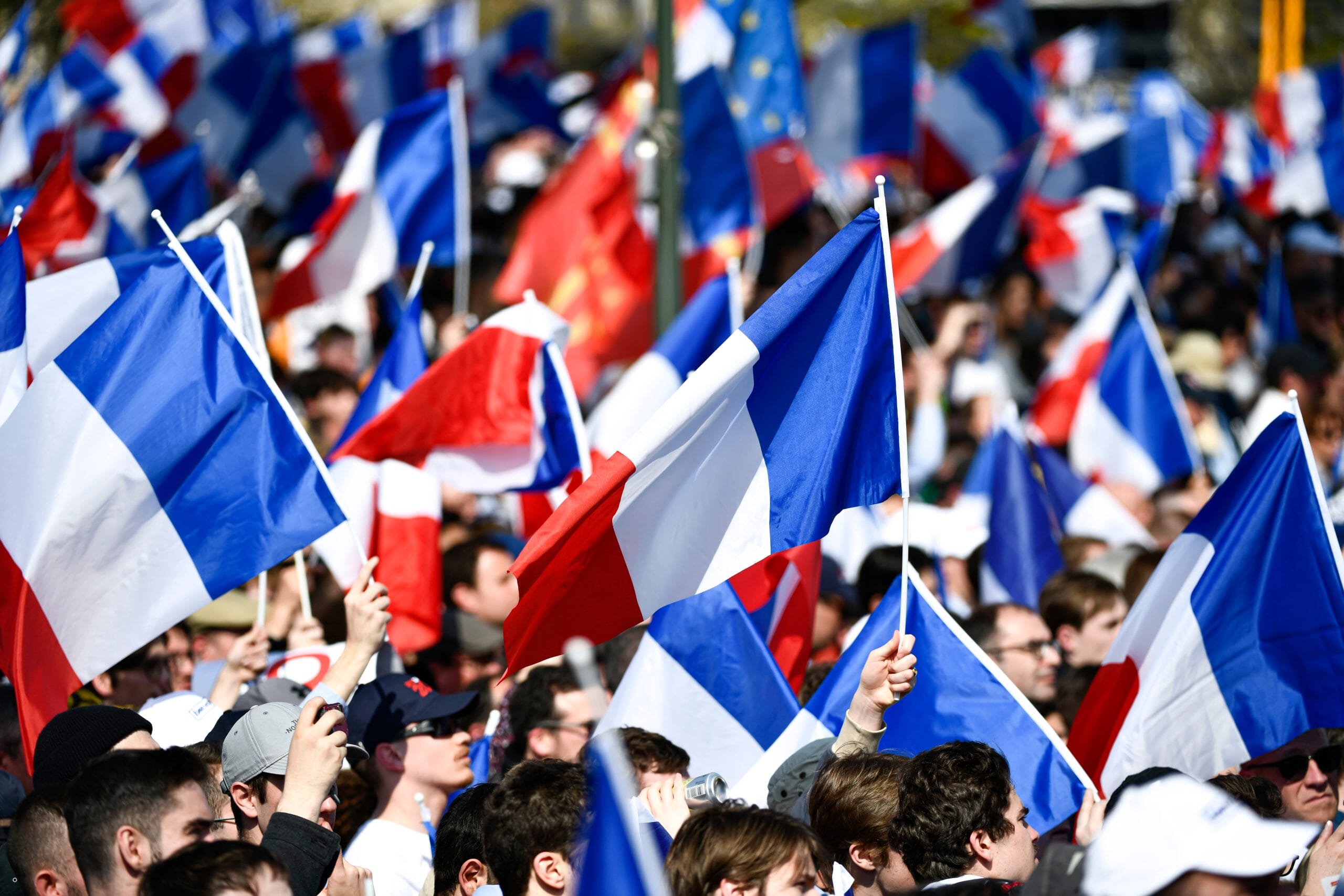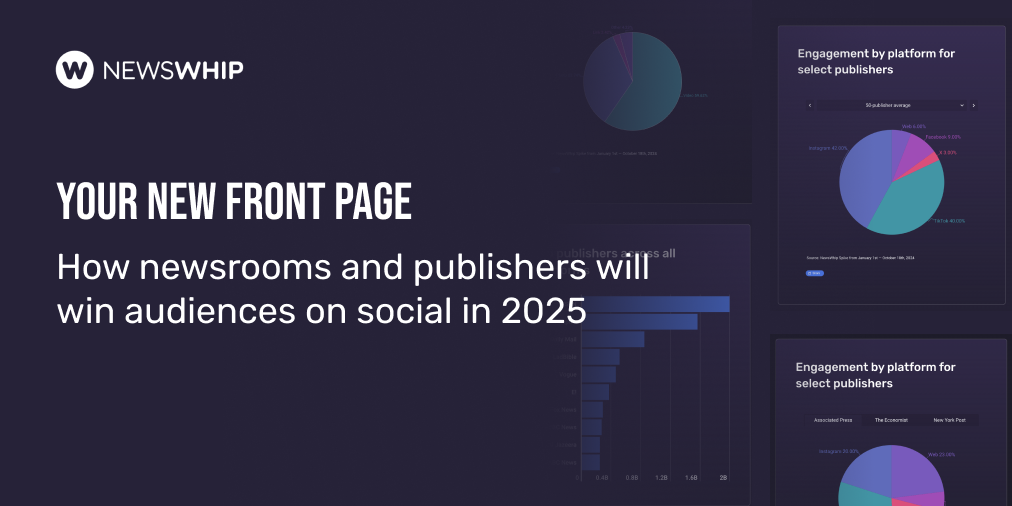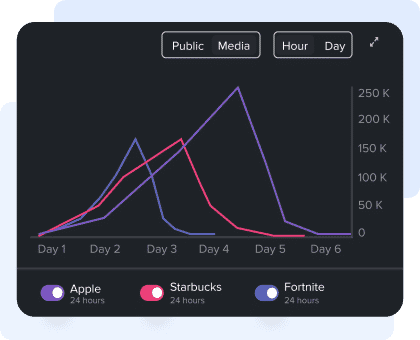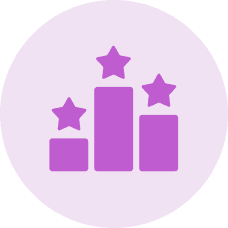In this analysis, we’ll look at what coverage has resonated, as well as highlight some of the influential voices across social platforms.
French election coverage in the media
The election was called in the immediate aftermath of the European elections, in which the National Rally party performed the best. Macron then called for elections in the National Assembly as the final results were still being tallied, calling for a moment of clarity for the country amidst shock from members of his own government.
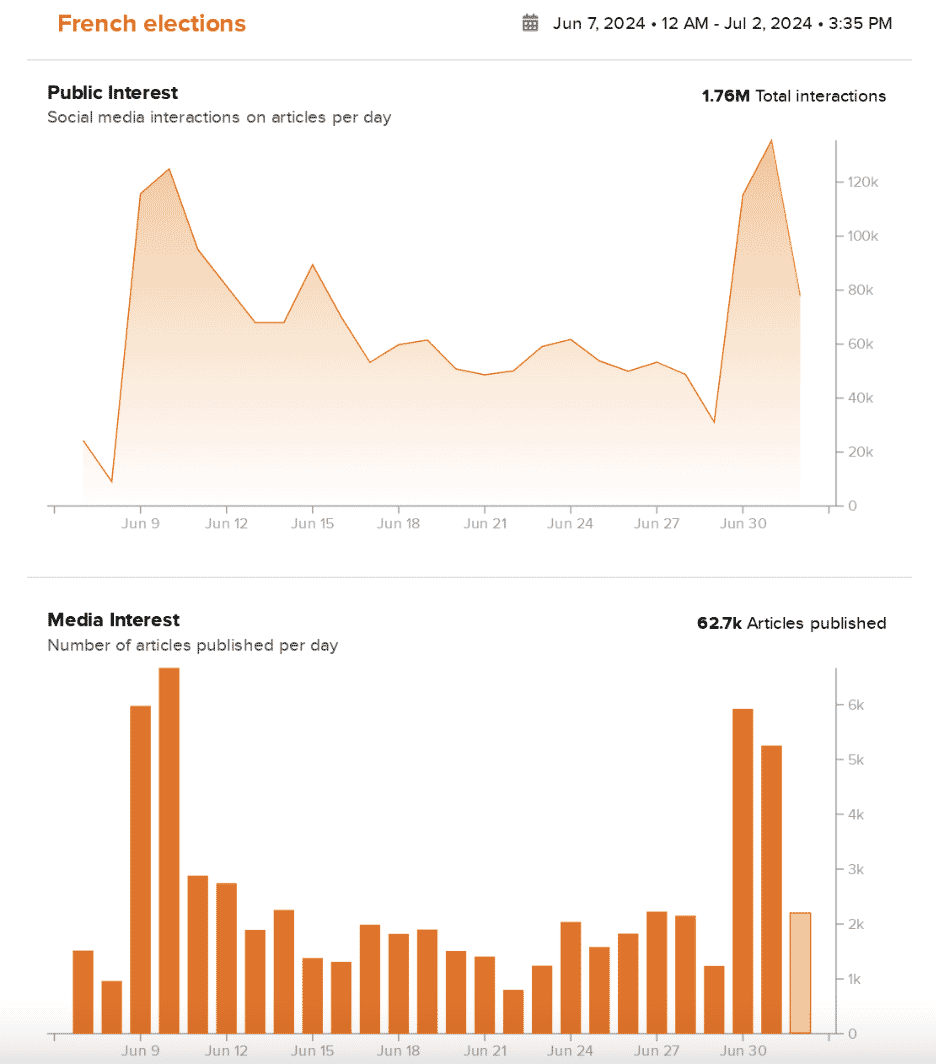
In each of these spikes, there was no clear dominant narrative. The first includes articles featuring both English and French reporting of the election results, while the second was thematically very similar, focusing on the success of Rassemblement National compared to President Macron’s governing coalition.
There were actually slightly more articles written in the aftermath of the European elections than after this weekend’s first round, though public interest was higher in the latter elections.
Social media is playing a big part in the coverage too, so let’s look at some of the top coverage natively on social platforms.
Top social coverage of the French elections 2024
The coverage has been quite different on the different platforms, and it’s reflective of social media as a whole. Our analysis does not separate English and French language posts, and it’s clear that native French posts are less prominent on X than on platforms such as Instagram, TikTok, and even Facebook.
While the top posts on X are from the likes of End Wokeness and PeterSweden reveling in Macron’s initial defeats from afar, French language coverage is leading the conversation on the other platforms.
This is a map of the E.U. election results in France tonight. The brown is for the "far-right" parties. pic.twitter.com/HhIBRXsaac
— End Wokeness (@EndWokeness) June 9, 2024
View this post on Instagram
View this post on Instagram
@quotidienofficiel Le député sortant RN, Roger Chudeau a laissé entendre qu’avec Jordan Bardella Premier ministre, les binationaux ne seraient pas autorisés aux postes de ministres, prenant l’exemple de Najat Vallaud-Belkacem. Grand malaise en plateau... alors qu'on lui promettait le poste de ministre de l'Education en cas de majorité absolue du RN à l'Assemblée nationale 🏛️ #chudeau #rogerchudeau #najatvallaudbelkacem #vallaudbelkacem #video #polemica #polemique #france #tiktokfrance #news #tiktoknews #elections #election #vote #rassemblementnational ♬ son original - Quotidien
View this post on Instagram
View this post on Instagram
If you’d like to read our coverage of the UK election, you can download our report here.

